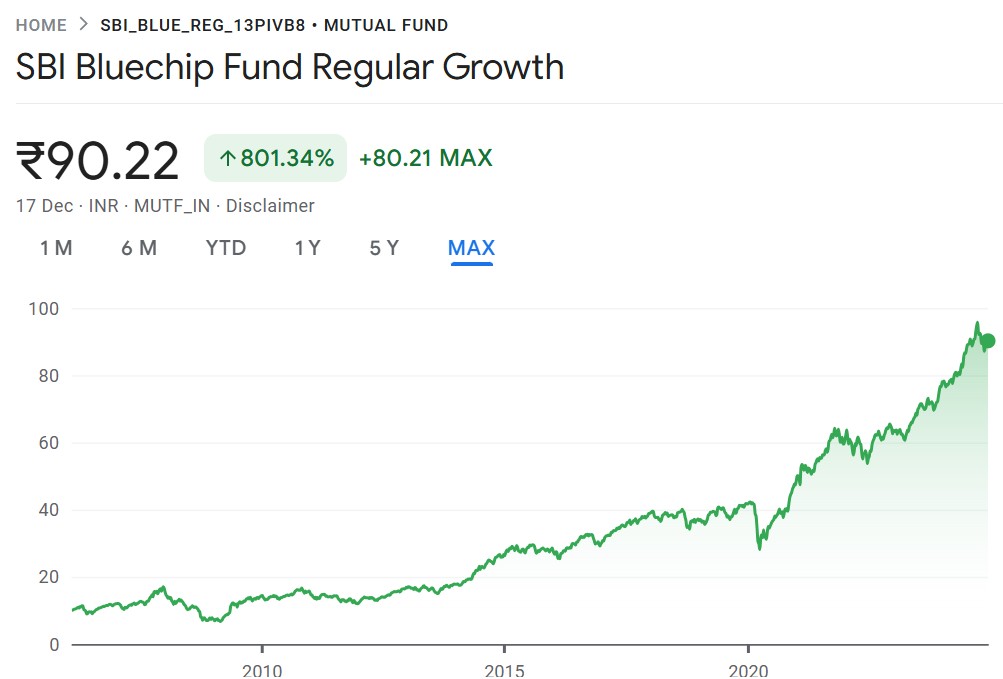Mutual Funds in Summary
A mutual fund pools in money from many many investors, small investors, large investors, HNIs. and then invests the pooled money into a diversified portfolio of securities such as stocks, bonds, money market instruments, or a combination of these assets. These funds are managed by highly qualified fund managers who invest the money on the investors behalf. Thus the risk is mitigated.
A mutual fund will have a NAV (net asset value) which is calculated daily typically aftermarket end hours. This NAV changes daily based on the markets going up or down. Using the NAV, the performance of a mutual fund can be tracked.
Sharing an example of a mutual fund. SBI Blue Chip mutual fund. on 18-JAN-2013. it had a nav of 17.01 and on 29-APR-24. it had a nav of 81.05. So, in 11 years it has given 4.76 times returns. So Rs100 has become Rs 476 in 11 years. Wow, money made.

Sharing more details on mutual funds.
- Diversification: Mutual funds invest in a diversified portfolio of securities, which helps spread investment risk. By investing in a variety of assets across different sectors, industries, and regions, mutual funds aim to reduce the impact of individual security performance on the overall fund.
- Professional Management: Mutual funds are managed by experienced fund managers or investment teams who analyse market trends, conduct research, and make investment decisions on behalf of investors. The fund manager's goal is to maximize returns while managing risk according to the fund's investment objectives and strategies.
- Investment Objectives: Mutual funds can have different investment objectives, such as capital appreciation, income generation, or preservation of capital. Investors can choose mutual funds based on their investment goals, risk tolerance, and time horizon.
- Transparency: Mutual funds are required to disclose their holdings, performance, fees, and other relevant information to investors. This transparency helps investors make informed decisions and monitor their investments effectively.
- Types of Mutual Funds: There are different types of mutual funds catering to various investment preferences and objectives. Common types of mutual funds include equity funds, bond funds, money market funds, index funds, sector funds, and balanced funds.
Investing in mutual funds offers several benefits, including diversification, professional management, convenience, and accessibility to a wide range of investment opportunities. Mutual funds are the right way to invest. So start investing.
Shailendra Kumar AMFI ARN no. -316269

"See this piggy bank. Incubate the habit of Savings. Become a millionaire."
